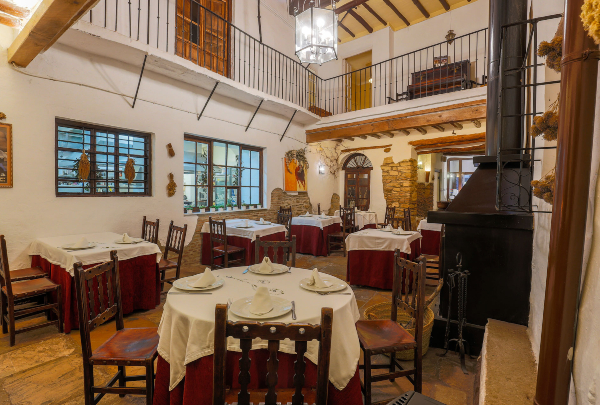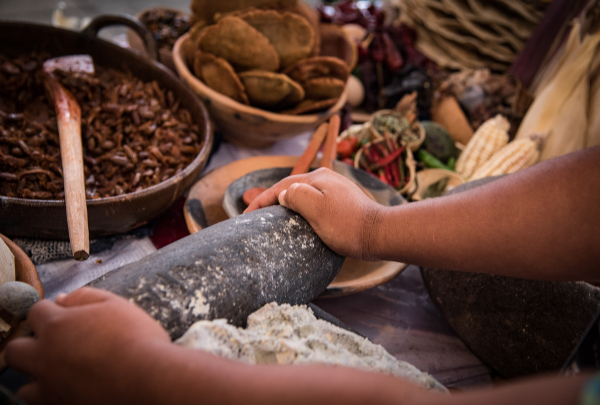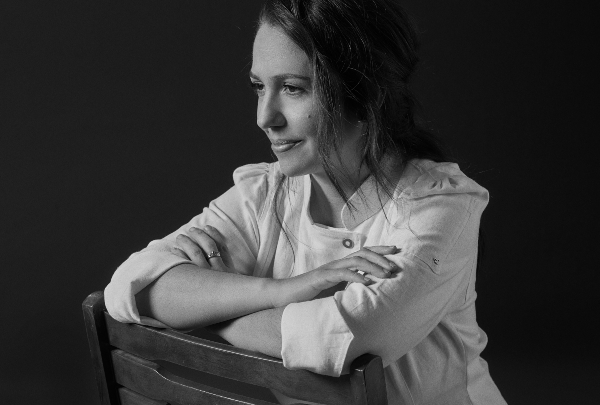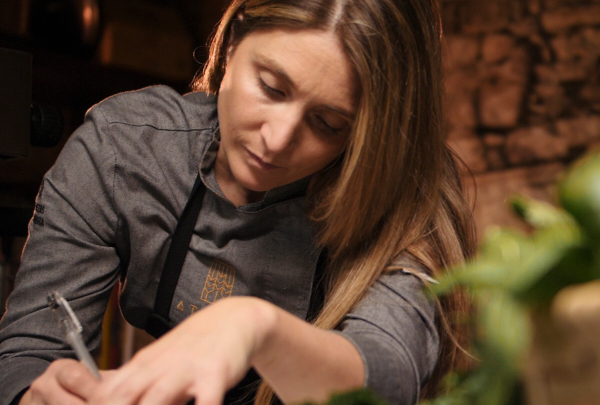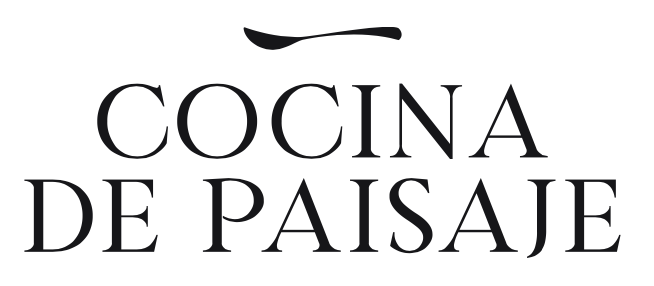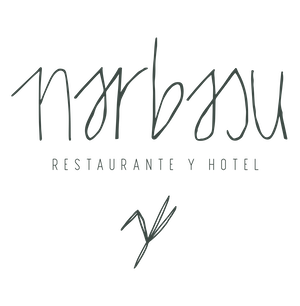Interview
Susi Díaz: “If you don't take risks, you're unlikely to be successful”
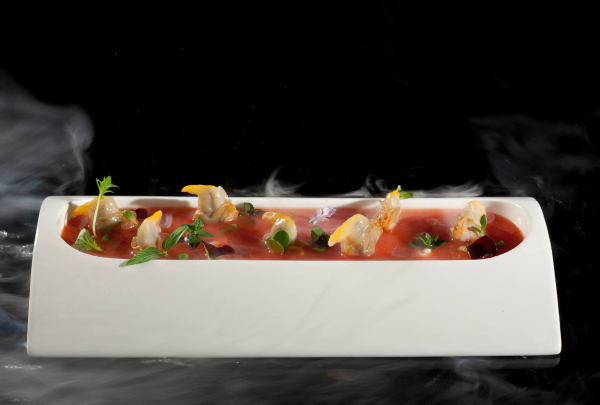
Even though she has been cooking for over three decades, Susi Díaz still talks passionately about a profession that continues to enthral her.
Her extensive culinary experience - including stints on television - has given her the wherewithal to map out a successful career that has, however, had its fair share of problems. She will be talking about female leadership, how to achieve that success, and the must-have factors to keep going in a profession which is not always a bed of roses.
In a few days we'll be listening to you talking about female leadership ...
I consider myself a person who is content with her professional career, who has been successful in her work, very happy with what she does and with an establishment that has gained some kind of recognition ... so the idea would be to provide some background on my experience, my attitude, how I work on a day-to-day basis ... In fact, if there are young people out there with any doubts on how to channel their plans, or people with enthusiasm who, like me, didn’t study at a catering school but want to enter this profession, I'll mention a few anecdotes on the tough times I've had.
You mentioned attitude, a key issue ...
Definitely. In this life you have to be humble. And that's my starting point. You also have to know how to listen. When you're in a setup with your team and you want the team to respond whenever you ask for something, you have to know how to listen to them.
And you also have to consider the business perspective. When we started off with the restaurant, we took a look at the type of establishments already operating in our area because we didn't want to do something that was already up and running. We didn't want to be just another restaurant. I remember during that period that I designed a wooden table to work on my cheeses and pâtés, something that was rather uncommon at the time. I went to the decor shops, and chose tiles and slate for my restaurant. I didn't realise that what I was doing differently was actually innovation.
Everything's easier now, because we have access to a lot of things, but when I started out you had to rack your brains to be different. And I still have the same enthusiasm.
Do you think enthusiasm is one of your business drivers?
If you lose your enthusiasm, the restaurant falls apart. It's an essential feature. Every single day, when you swing your feet out of bed, you have to get up purposefully, eager to do things. And not only that - you also have to convey that idea, because you don't get anywhere on your own. You have to work with a team.
Another aspect you have to consider when you decide to take on a project is to take risks. Some people don't like taking risks, but if you don't undertake risks, you're unlikely to get anywhere. We took care to bear that in mind.
But there's also a certain amount of personal/family sacrifice, isn't there? The way our lives are structured, even if we've moved forward a little in that way, isn't that a greater stumbling block for women than for men?
Funnily enough, I've made a note of that one to cover it in my talk. In fact, one of the phrases I've written down is "are you willing to miss out on certain things in your personal life?" Because you do miss out on those things.
I can tell you, for example, that I missed the day my daughter or my son took their first step. Or their first words. It's very difficult to combine this job with normal family life. You have to be willing to lose out on some of your personal life.
I imagine it's also important to have a family that understands or stands behind your profession.
Yes, you have to have a family that supports you. Most of the leading women I know in the gastronomy world are there because they share the profession with their husbands. Both of them have the same enthusiasm and the same goals, and they both support each other. I always say that if my husband had been a doctor, for instance, instead of being with me at the restaurant, I definitely wouldn't have got where I am today.
If you want to get to the top in this profession or any other, you have to keep at it 24 hours a day. That's the way it is - there's no other way. Just working isn't enough - you have to dedicate your life to it, and you lose a lot of things on the way.
The pandemic, in fact, has led to some reflection on that work/life balance in the hospitality sector ...
We're definitely moving forward. And moving forward means educating the customer. If you close at 00:00 h, at 23:30 h diners are asking for the bill and leaving. With an open-hour system, you get people who're in no hurry to leave at 2 am because they're comfortable, and it's difficult to tell them they have to go. Nowadays, they complain about your unfriendliness on social media, and it's unfair that you should pay for it that way.
During the pandemic, customers had to accept the strict opening times because it was an imposition, and that helped a lot. This situation has "educated" people and taught them not to hang around for so long, because it's true that time drags on, but the entrepreneur can't do anything about it.
You say that each chef identifies with a product due to the surroundings ... so what do you prefer to cook?
I could probably tell you what I prefer not to cook, and that's meat. It's a lot of work for me to do meat dishes, because when I was a little girl I was always 10 km from the sea. And the most my grandmothers had was a farmyard. Meaning chickens, hens, turkeys, rabbits ... no sheep, calves or pigs. And my cooking is what I used to see as a little girl.
That's why I'm happy working with vegetables and sea produce. Here we have spectacular prawns, shrimps, Dublin bay prawns, midsize squid, cuttlefish, beach squid, gilthead bream, red rock mullet ... it's very simple cuisine, but well thought out.
With all your workload, including your television appearances, I suppose you won't have any time for future projects.
With Irene and Chema [her children], the future is very comfortable because they're powerful thinkers, and that's the youth I lack ... I have the experience and the maturity ... and the three of us run the restaurant together. They like me being here, and so they give me encouragement, they support me, and I think we can still pack a punch ... they're the future, and I'm sure they'll do fine.
A sense of pride that a project in which so much hard work has been invested has secured continuity.

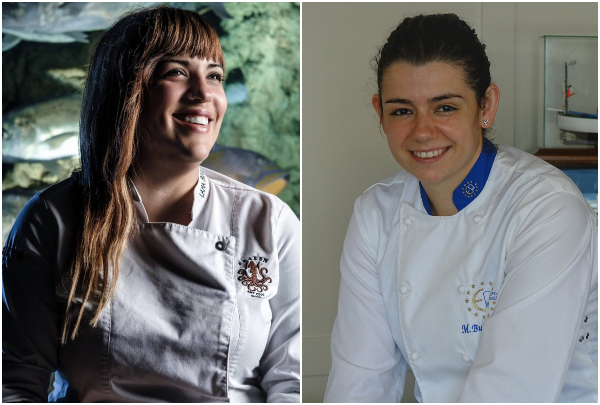
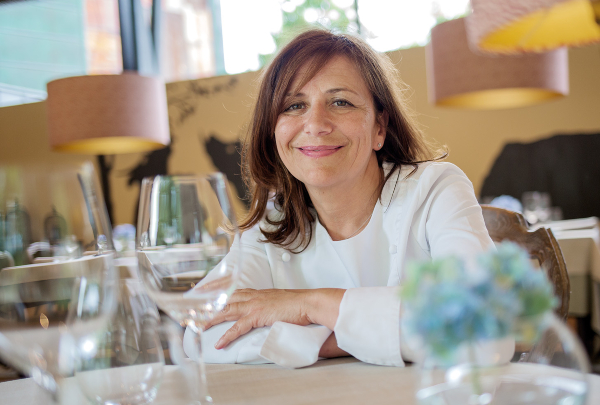
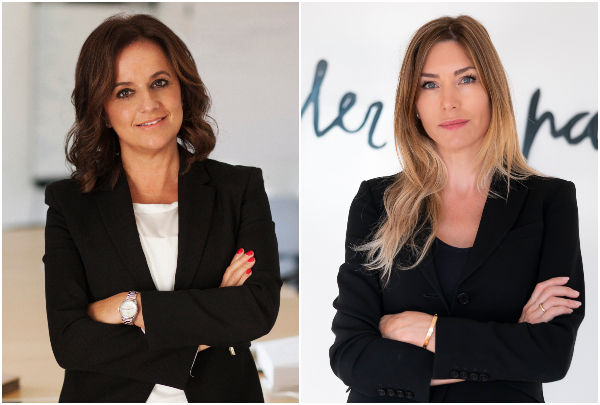
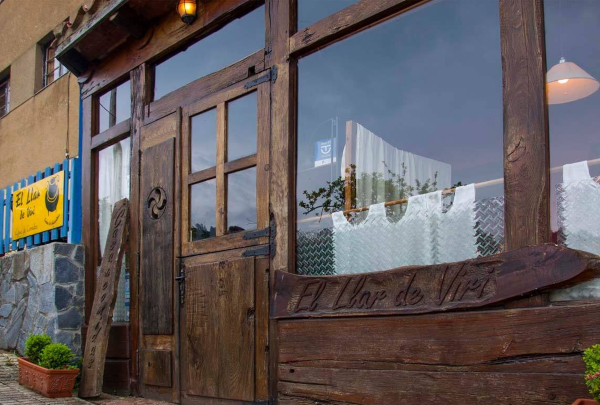
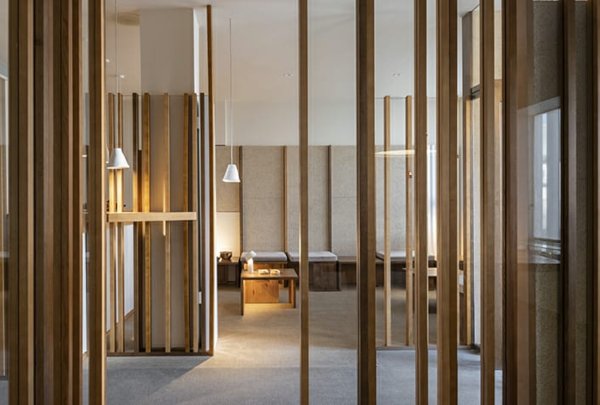
.jpg)
